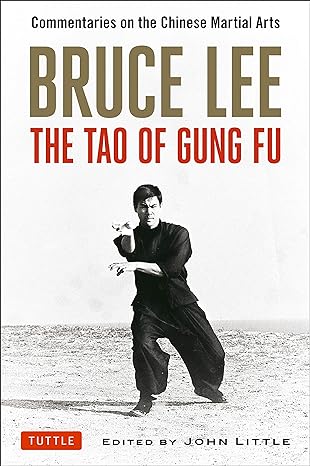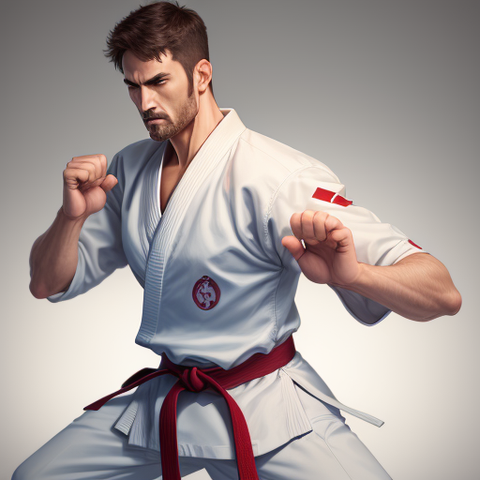How Long To Get A Black Belt in Taekwondo - Struggles of Taekwondo
How long will it take to pick up Taekwondo black belt quickly? The fastest proclaimed Taekwondo black belt, with some Karate background, took slightly over 2 years. However, the average time taken is around 5 years and can take as long as 40 years if you are as committed as Dr. Harlan Van Over, who received it at 94 years old.
grappleshot in Reddit shared:
I started training in my current style (Taekwondo) January 2014. I was going to test for 1st dan June 2015 but broke my shoulder in a bike accident. I had surgery in October 2015 and finally tested successfully in August 2016. But I came from another style (Shotokan Karate), already a black belt, just not trained for many years. Another guy at my club came from an ITF club as a 3rd dan and graded in 18 months. We were both over 40 years old (just). Every other student I know has taken 5+ years.
I only trained 2 days a week for an hour per session, but it was more just learning the forms and tiny adjustments to stances and kicks. I graded at the rate of nearly a Kup a month. My Kwan allows gradings per month (although rare) at the discretion of the Sabum nim.
This article will list more things you may want to take note of that can either be encouraging or discouraging for you.
No doubt learning anything new takes a lot of time and effort, and in Taekwondo, to achieve your first highest black belt level, it might take an average of five years. However, undoubtedly, this varies from individual to individual depending on your physical abilities and the amount of effort you are willing to put in.
- I mentioned 77-year-old Ms. Lynn Soh in my previous article on if you are too old for Taekwondo, who took approximately three to four years to achieve her first black belt.
- The second inspiring figure, Dr. Harlan Van Over, who was the oldest person to receive and hold a 6th dan at 94 years old, also began at a later age of 59 years old but remained committed to the sport for decades.

Lynn Soh, 77-year-old who achieved her first black belt earlier this year (Source: Mothership Singapore)
Your focus on this journey you intend to take shouldn’t be the number of years that you will take to achieve a black belt in taekwondo.
These two individuals show us that age is no limiting factor that prevents one from practicing martial arts, and there are no set years that one should achieve their black belt! Ms. Lynn Soh and Dr. Harlan Van Over serve as great inspirational figures and they remind us just how important dedication and commitment are in anything that we do.

Learning any new skill, especially martial arts, requires great mental focus and discipline and can teach us patience and perseverance. Of course, as you attend training, you may find out that your stamina and physical strength can greatly affect your initial determination and interest in the sport.
Indeed, if before joining Taekwondo, you’re not already accustomed to frequent physical training sessions and flexibility training sessions, then the first few months will be a challenge for you. Especially since Taekwondo is a rather strenuous sport, you need a lot of discipline and determination to push through the first few difficult months of training sessions and continue so that you can achieve the black belt level.
- Typically, a beginner starts learning Poomsae patterns and these include a variety of movements like kicks, stances, and punches that one may not feel used to. This range of movements may be uncomfortable and difficult since it requires some degree of flexibility and strength.
- For some, flexibility may be an obstacle, but for others, strength may be the greater issue at hand. In any kick or punch you execute, you must be in the correct form and display the right amount of power, so these two factors that are related to physical ability—flexibility and strength—are key in this particular sport but maybe great challenges for beginners.
Some may say “one is never too old for Taekwondo or any other sport”, and I second this. Yet I’d also like to bring caution to this phrase and remind anyone interested to pursue the sport: With any other new skill, especially one relating to sports, physical strength is important. But mental strength is all the more crucial for those joining at a later age.
Physical strength and flexibility can be built up and improved as long as you consistently train and are ready to give it you're all. But the amount of hard work you have to put in may greatly exceed what you think is required, especially for those who are not used to participating in sports activities. Learning the different fundamental movements and techniques (Figure 2) requires a lot of hard work and discipline, for it doesn’t come naturally and easily to the vast majority of individuals, especially those who join the sport at a later age.

Examples of some stances, kicks, and punches that are not the easiest for everyone (Source: Made4fighters)
On top of physical strength, beginners who join at a later age also need to build up their mental strength to push through the training that may be difficult at the start. After weeks or months of training, you may begin to feel frustrated at the rate of your progress or the fact that you are not improving as quickly as you wish you would. But remember: All things take time. You may feel low-spirited now, but when you persevere and prove to yourself that you can complete the training sessions you once found difficult, your overall self-esteem, confidence, as well as your physical ability, may greatly exceed what you had begun your Taekwondo journey with!
At this point, it is perhaps good to note that it is not the belt level you hold or the amount of time you took to achieve each of them that makes up your taekwondo journey. Rather, the values that you will learn, the mastering of physical strength and control, and the friendships that you’ll make may become the more memorable aspects of this journey of yours.
With that said, at different clubs, you may find different practice styles and rules when it comes to training and matters related to belt promotion. Some clubs and schools may focus on quickly promoting their members from belt to belt, and this may easily create a false sense of accomplishment for you.
If you take a look at the techniques learned in the eight different Taegeuk Poomsae patterns and the nine dan Poomsae patterns (ACME Taekwondo), you may notice stances, kicks, and punches are repeated. This means that having a strong foundation and mastering these basic movements is extremely key in this sport, so there is no rush to achieve the highest belt levels within the shortest time possible or even by a certain age.
Find a club with an environment and culture in which you are comfortable training. Be consistent in practicing your basic movements. Don’t be afraid to ask for help from the seniors and coaches. Be tenacious and learn from your mistakes. Be patient and learn at your own pace. It is key that you do not enter Taekwondo with the sole mindset of simply progressing up the different belt levels as quickly as you can. What’s more important is that you master the basic movements so that your progress and future belt advancement can be achieved smoothly. With this, you may feel a greater sense of accomplishment!
Taekwondo, like any other skill, is a big commitment. It may take very long for you to see results and it may be extremely challenging to push through the first few months when you’re still getting used to the frequent training and different movements that you’ve never tried before. But as long as you have patience and perseverance and are willing to put in the hard work, you can do it. Besides, you will have your fellow peers and seniors alongside you, guiding you and learning with you along the way!
I’d like to end this article with a few sentences that a friend of mine in Taekwondo always says: “Do not undermine the effort and dedication that others have poured into their Taekwondo journey. Remain committed to your progress and continue training hard with your friends. One day, your effort will pay off too.”
Indeed, as the saying goes: “Tough times don’t last. Tough people do.”
Ansley Goh
I enjoy reading up on a variety of topics that interest me and these could be anything ranging from the arts and heritage to business and social sciences.
Other Posts By Author








